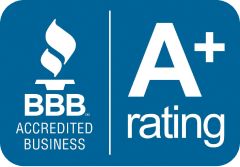Find the Best affordable
Medicare Plan



Andrew Smith
About Medicare Advantage Part C Plans (Best Affordable)
What is a Medicare Advantage plan?
Medicare Advantage Part C Plans: You can choose to enroll in Medicare Part C, often known as Medicare Advantage if you are currently enrolled in Original Medicare, Parts A and B. Private health insurance businesses offer Medicare Advantage plans to supply and coordinate Medicare Part A and Part B (hospital and medical) coverage for enrollees.
You might be wondering why a Medicare Advantage plan would be chosen by a beneficiary. Except for hospice care, a Medicare Advantage plan is supposed to cover everything that Original Medicare does, including emergency and urgent care. Original Medicare covers hospice care, and Original Medicare benefits continue to be covered even if you have a Medicare Advantage plan. There are, however, some distinctions between Original Medicare and Medicare Advantage plans. These disparities could be in the amount of money you pay out of pocket for health care. You might, for example, have fewer copayments and coinsurance, as well as a lower deductible.
Tip:
Medicare Advantage provides coverage that is at least equivalent to Original Medicare, with the possibility of additional benefits. It might be a method to expand coverage to include routine vision, dental services, dentures, and other items. Some Medicare Advantage plans have no out-of-pocket costs. You must, however, continue to pay your Medicare Part B payment regardless of how much you pay for a Medicare Advantage plan.
It’s also possible that the coverage you get differs. Routine vision, routine dental, and/or wellness services are included in some Medicare Advantage plans. Prescription drug coverage is available in many plans; they are known as Medicare Advantage Prescription Drug policies (MAPD).
Be advised that even if you enroll in a Medicare Advantage plan, you will remain enrolled in Original Medicare and must continue to pay your Medicare Part B premiums. You will not be able to get a Medicare Supplement insurance plan if you enroll in a Medicare Advantage plan (Medigap).
Types of Medicare Advantage (Part C) plans
To determine which Medicare Advantage plan is best for you, you must first grasp the distinctions between the various types of plans. Medicare Advantage plans come in a variety of shapes and sizes:
- HMO (Health Maintenance Organization): Allows you to see doctors and other health professionals who are members of the HMO’s provider network. If your doctor is already in network, it may be an excellent option because in-network providers charge less out-of-pocket.
- PPO (Preferred Provider Organization): Covers both in-network and out-of-network providers, allowing you to see any doctor who accepts Medicare assignment, which can be beneficial if you prefer that level of flexibility.
- PFFS (Private Fee-for-Service): The plan decides how much it will pay providers and how much you will have to pay when you receive treatment. The treating doctor must agree to treat you and accept the plan’s payment terms. If the doctor refuses to accept such terms, the PFFS plan will not pay for services provided by that doctor.
- SNPs (Special Needs Plans) are designed specifically for people with specific disabilities. Medicare beneficiaries in institutions, those who are dual-eligible for Medicaid and Medicare, and those with chronic diseases such as diabetes, ESRD, or HIV/AIDS are all covered by the three SNP plans. Prescription drug coverage is always included in this sort of plan.
- HMO-POS (Health Maintenance Organization – Point of Service Plan): Provides coverage for both in-network and out-of-network medical services, but at separate prices. When you visit in-network doctors, laboratories, hospitals, and other health care providers, you pay less out-of-pocket.
- MSA (Medical Savings Account): This plan has a high deductible as well as a bank account to help you pay it. The amount that is deposited into the account varies by plan. The money is tax-free as long as it’s spent on IRS-approved medical expenses, which include the deductible from your health plan.
Eligibility for Medicare Advantage plans
Your eligibility for a Medicare Advantage plan is determined by your Original Medicare Part A and Part B eligibility (except if you have ESRD). If you have Medicare Parts A and B, you are generally eligible for Medicare Part C. You must, however, live in the service region for the Medicare Advantage plan you’re thinking about.
Before enrolling in a Medicare Advantage plan, check with your plan administrator about the regulations of any other health insurance coverage you may have, such as via an employer or union. If you join in a Medicare Advantage plan, you may lose your previous coverage, and you may not be able to get it back if you change your mind later.
Enrollment in Medicare Advantage plans
Only certain election periods apply to enrolling in a Medicare Advantage plan:
Initial Coverage Election Period:
When you initially become eligible for Medicare, you can enroll in a Medicare Advantage plan or a Medicare Advantage Prescription Drug plan. Your Initial Coverage Election Period (ICEP) is a seven-month period that begins three months before your 65th birthday, includes your 65th birthday, and concludes three months after your 65th birthday. If you are under the age of 65 and receive Social Security disability payments, you will be eligible for Medicare in the 25th month after you begin receiving benefits. If you fall into this category, you have three months to enroll in a Medicare Advantage plan: three months before, three months during, and three months after your month of eligibility.
Annual Election Period: Every year, from October 15 to December 7, the Annual Election Period (AEP), commonly known as the Open Enrollment Period for Medicare Advantage and Medicare prescription drug coverage, takes place. The coverage you select during the AEP will commence on January 1 of the following year. It enables Medicare beneficiaries to supplement, modify, or discontinue their current coverage. You can enroll in a Medicare Advantage or Medicare Prescription Drug Plan, or switch plans, during this time. You can use this period to disenroll from a Medicare plan if you’re already enrolled.
Medicare Advantage Open Enrollment Period (OEP): If you change your mind after enrolling in a Medicare Advantage plan, you can return to Original Medicare from January 1 to March 31. You can enroll in a stand-alone Medicare Part D Prescription Drug Plan during this time if you would be losing prescription coverage as a result of the transfer.
Special Election Period: In most cases, once you enrol in a Medicare Advantage plan, you are locked in until the following Annual Election Period (AEP) begins. Some life events, however, may qualify you for a Special Election Period (SEP) at other periods of the year, allowing you to modify your Medicare Advantage coverage. These life experiences could include (but are not limited to):
- Leaving the service region of your Medicare Advantage plan
- Eligibility for Extra Assistance (a program to help you pay for prescription drugs)
- Taking up residence in a facility (such as a nursing home)
More to explorer

What’s the Penalty if You Don’t Sign Up for Medicare?
Summary: Some people are unaware that delaying enrolling in Medicare after becoming eligible may have consequences. The majority of people don’t pay

Medicaid and Medicare Savings Programs
Key Takeaways Medicaid is a type of health insurance available to those with low earnings. It is distinct from Medicare, which provides

Does Medicare Cover Dental Care?
Original Medicare And Dental Coverage does Medicare cover dental? Initial Medicare Generally speaking, dental treatment is not covered by Parts A and

